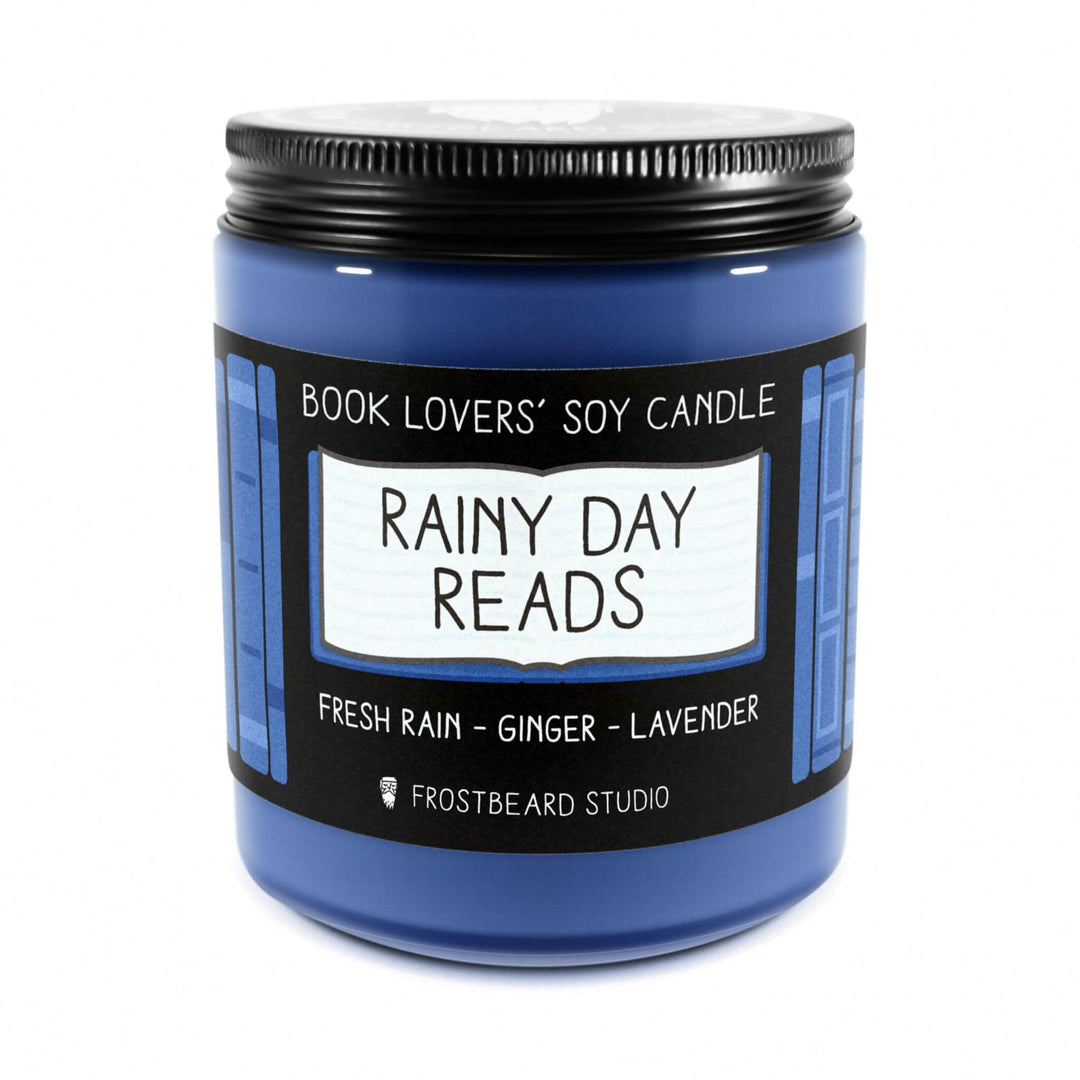To E-Read or Not to E-Read?
It’s the ultimate question, generating fierce debate in literary circles around the world.
Every bookworm has uttered it at one point or another. In fact, we guarantee that this query has come out of your own mouth sometime in the last decade.
Here it is.
“Should I get an e-reader?”
Some people hopped right into the trend when the technology emerged around 2006. Amazon’s Kindle, released in 2007, sold out in just five and a half hours. Others have held off, eschewing this blasphemy and upholding physical books as the only true option. The debate rages on to this day, with fierce proponents on each side.
Is e-reading really the death of the paper book? Should we fear ebooks, or embrace them? Here at Frostbeard, we've yet to give into the e-reader craze (though we do read a little bit on our iPad while traveling). We thought we’d walk through the pros and cons of ebooks versus physical copies, so that those on the fence could get a better idea of exactly what they’re signing up for when they enter the debate or start browsing on Amazon.
E-Readers
When we say “e-reader,” we don’t mean an iPad or phone or other mobile device that can be used for a thousand other things; we mean a portable device 100-percent dedicated to displaying digital books. Barnes & Noble’s Nook and Amazon’s Kindle are the most popular versions, but Sony and several other brands offer their own versions.
Cost Efficient
While e-readers like the Kindle and Nook call for an upfront investment, enterprising bookworms can make them pay for themselves. Amazon Prime members get access to hundreds of free downloads, as well as newly released books each month. Apps like Libby even allow you to rent ebooks from your local library. And then there are those endless email newsletters dedicated to sending you daily deals on titles from Ursula K. Le Guin to James Patterson.
The takeaway? If you’re a voracious reader who tends to buy multiple books each month (hello, us), you may find an e-reader worth the initial cost and ultimately a little kinder to your budget.
Access Endless Titles
You know that feeling of desperation that seizes you right after finishing the first book in a really good series? Woe unto you if you didn’t already pick up the second one, because chances are good that your local bookstore will be fresh out when you burst in just before closing time.
Assuming the next book has already been published and you have a stable internet connection, you’ll never run into that problem again with an e-reader. The Kindle library alone currently offers millions of titles!
Portable
Perhaps the most useful aspect of an e-reader is that it can easily fit in a backpack, purse, or even a jacket pocket. This makes e-readers the ideal companion for travel, commuting to work, or waiting in anything from a long grocery line to the DMV. We’ve hauled our fair share of heavy tomes across the country because we couldn’t bear to be parted from an exciting read, but we have to admit that an e-reader would have made the journey a bit easier.
Physical Books
We obviously can’t say enough positive things about physical books, so here are just a few!
Feel Better to Handle
Hey – we didn’t say this pro and con thing would be completely objective, did we? Because to us, there’s nothing more reassuring than a hefty novel in hand or the soothing sound of turning pages. And while e-readers are particularly convenient for traveling, they can’t hold a candle to the physical feeling of flipping paper. There’s just something magical about cracking open a new read while cozied up in a cafe that a light-up screen will never be able to approximate.
Don’t Emit Blue Light
If you work in an office, you may have seen a colleague or two come in sporting blue-light-blocking glasses recently. This wavelength of light is emitted from computer, tablet, and even e-reader screens, and it has been linked to retinal damage and irregular circadian rhythms. So while reading is a great way to wind down before bedtime, doing it on an e-reader could have the opposite effect. That being said, you can still strain your eyes reading a regular book, so make sure you look up every now and then!
Let Readers Retain Info
If you want another science-y reason to reach for a paperback, here it is: we retain info more deeply and for a longer period when reading on paper versus reading on a screen. Think about scrolling through social media on your phone: are you actually reading every single post, or are you skimming to get the gist of things? That instinctive style of screen reading can cause you to gloss over key plot points – and that’s no way to enjoy a book.
What’s It to Be?
At the end of the day, our goal has always been to promote the love of literature, through our book inspired candles and literary listicles alike. So we won’t presume to make the decision for you. But if you ask us, nothing beats a fresh paperback or a gorgeous hardcover. E-readers will keep upgrading their screens, and we’ll keep bringing our iPad on trips, but they’ll never be quite as good as a book in the flesh – er, paper. And that’s just fine with us!
Are you an ebook reader? A staunch believer in the power of the physical page? Or somewhere in between? Weigh in on the debate and let us know where you stand.








